Eyes of Wakanda
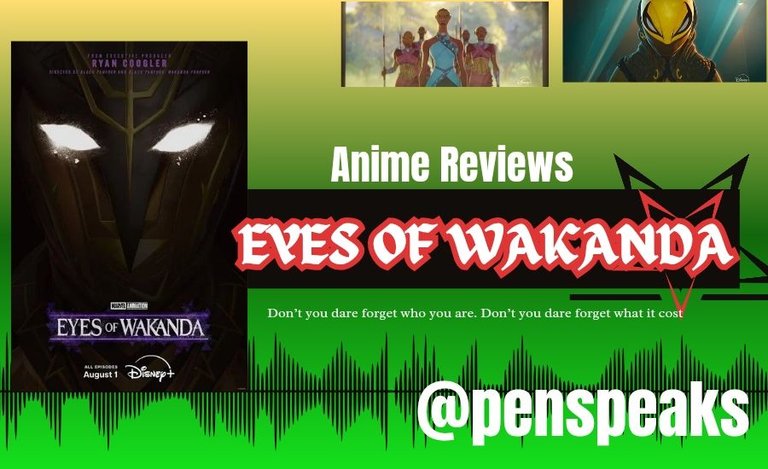
Being of African descent, I have wounds that I do not talk much about. Generational wounds.
QuoteDon’t you dare forget who you are. Don’t you dare forget what it cost. 😡
I’ve always been haunted by what lies beneath legend. Black Panther opened a world brimming with untapped mythology. I've always loved black Panther and the Wakanda family. When I heard Eyes of Wakanda would plunge into that unknown, following Wakandan spy-warriors through eras like the Trojan War and 19th-century Ethiopia, I was intrigued. Knowing Ryan Coogler was executive producing, my hopes soared. Could this be the mosaic of Wakandan identity the MCU needed? When August 1 rolled around, I dove in headfirst.
As soon as the first frame appeared on my screen, I realized that I was in deeper waters. The style of art did not coddle you. It did not attempt to win you by spit and polish. Rather it welcomed you to ancestral memory. In a world where each line, each stroke of the brush, each shadow, each movement, had a breath of history, of pain, of glory and of resistance. This was not a simple animation. This was a poetic image, a social accounting.
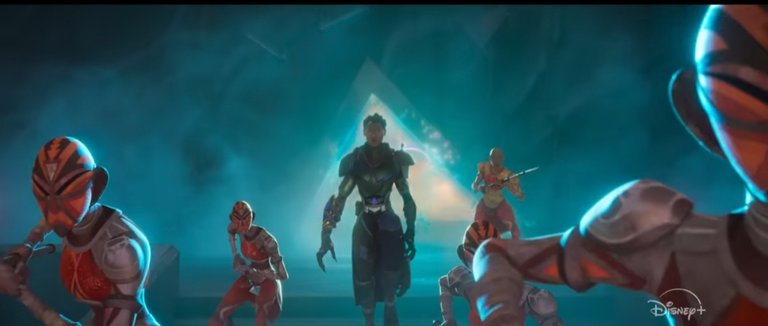
Eyes of Wakanda is not a side-story. It is a soul-story. It centres on the Wakandan warriors who are required to retrieve vibranium across the continents and generations. However, it was not only the plot which impressed me the most. It was just the spirit of it--the thing that made the past live and burn and not glamorize pain or heroism. It was not every mission that was about glory. It was an identity. Survival. Memory.
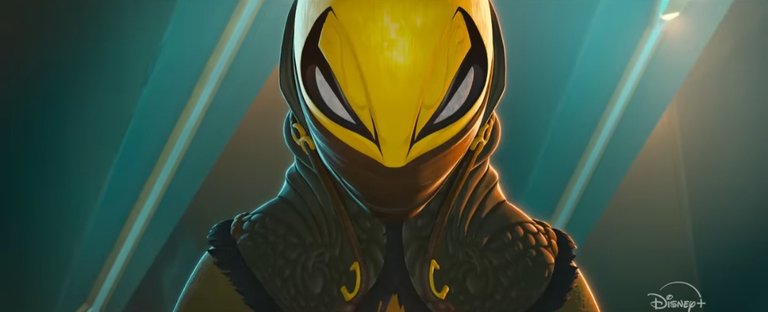
The anime does not pamper the viewer. It does not provide easy pleasure of saving the day by superheroes. It has given you something much more challenging: the burden of what it is to have something sacred to carry in a world that wants to take it, corrupt it and forget. And the soldiers? They are not some legendary creatures. They’re human. Black. Wounded. Relentless. Haunted.
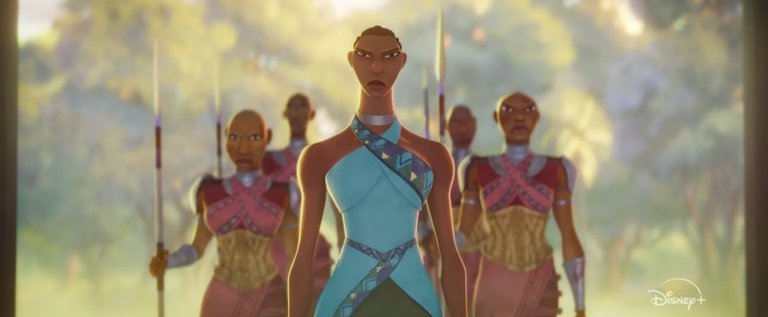
There was an episode, which was in 18th-century Europe, where a Wakandan warrior masqueraded as a servant, merely to find an artifact made of vibranium stolen by a colonial aristocrat. It was not the tension of the fight. It was there in the silence. The glances. The silent pride of her glances when she had to pass through the halls made of Black death and conceal the strength under submissiveness. I never forgot that scene as much as I forgot any explosion made by Marvel.
It was not plot addiction that made me watch episode after episode. It was more of the gut. I felt observed. Being of African descent, I have wounds that I do not talk much about. Generational wounds. The type that you never truly name, that you just feel whenever the history books go and are rewritten without us.
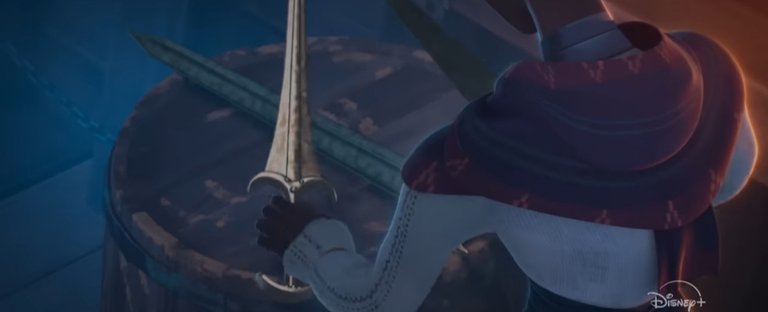
Eyes of Wakanda does not attempt to give an explanation of Black suffering and victory to those outside. It fails to water it down. It is addressed to the people who are informed. And those who do not? It challenges them to experience it all the same.
The minimalist but also purposeful animation was like a revolution on its own. It did not care whether it was pretty or not. It would have liked to have been true. There was no time as it was layered with ancestral chants and industrial echoes. Sometimes it seemed as though I were not watching the pictures--I was recalling. Not only as a spectator, but as an heir. Being a person, whose blood was once familiar with the burden of chains and the flame of rebellion.
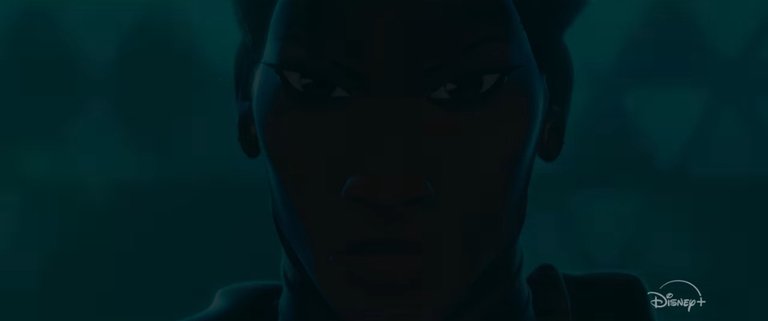
And that is why Eyes of Wakanda stands out so differently in comparison to everything in the entire Marvel universe. It is not a spectacle. It is all about accounting. It looks you in the eye and says, Don’t you dare forget who you are. Don’t you dare forget what it cost. It has a scene in a desert where a dying warrior tells her last words not to a person, but to the wind. Home it, she says. But even though I cannot. That line, one that is so easy and yet so painful, was universal to me as to anyone who has ever felt displaced, erased, or exiled to their origins.
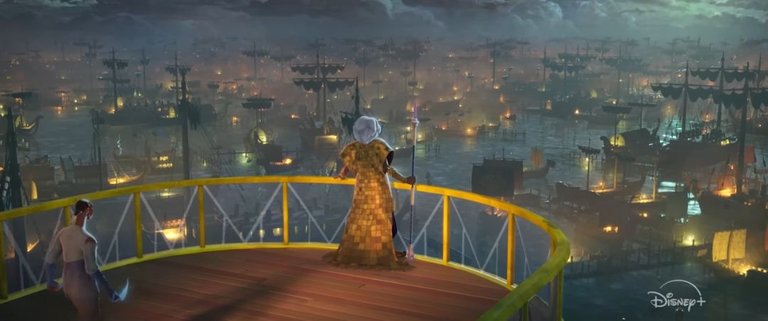
Another way that this anime confronts us is regarding history. It hints that the protection of Wakanda was not isolationism-but stewardship. All the missions to collect vibranium were nothing but a metaphor of how the blacks have been coerced to reclaim their lost heritage, dignity and stories.
Although it was fun to watch Eyes of Wakanda, this was not the only thing. It was a rite. A meditation. A confrontation. It reminded me how we are still fighting, how we are still preserving, how we are still rising. I was wondering what holy things I am carrying? Which are my stories to watch over?
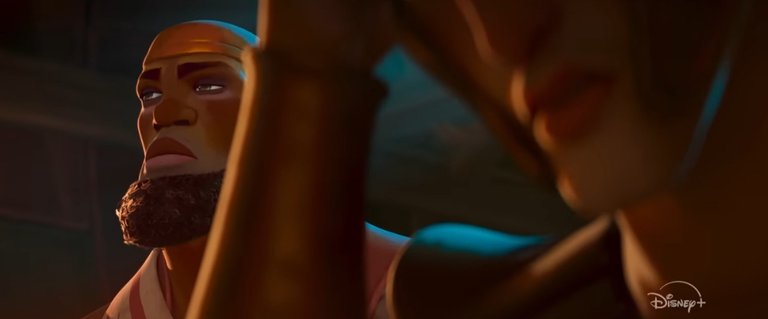
The only criticism that I can give, should I have one, is that I wanted more. I wanted more episodes, backstories. Or perhaps that is the point. Perhaps this series does not want to present us with everything. Perhaps it desires us to search. To research. To put it to our grandparents. To go into the unexplored places of our history and say, I see you. I remember.
It has a special sort of hurt to it when you know you were in the middle of a story. And there is something special about healing that one gets through reclaiming it. Eyes of Wakanda is both. It does not provide simple solutions and happy endings. It provides truth. And truth, and particularly the Black kind, is revolutionary.

Well, then, you know, you are the person that wants explosions, wants CGI battles, wants quippy heroes? This can not be your show. However, in case you want to be touched and touched deeply, in case you want to be shaken to your core, in case you want to be forced to sit with uncomfortable truths and holy beauty, then this anime will leave its mark. As a viewer not only. As an eyewitness.
The viewing of Eyes of Wakanda made me recall that we are not only people, but we are archives. We are libraries that are breathing and bleeding. And not all the stories are meant to divert. They are supposed to awaken.
#anime #otaku #japan #animereview #weeblife #animation #AnimeRealm #disney #hive #history #mystery